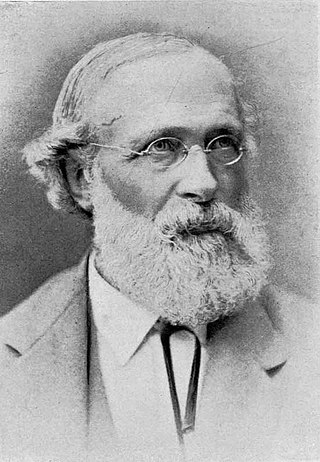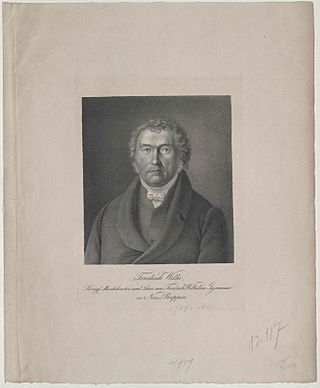
Emmy La Grua (also Emma, Emmi or Emilia) (born 15 May 1831 in Palermo; died after 1869) [1] was a 19th-century Italian opera singer (soprano) who performed successfully internationally.

Emmy La Grua (also Emma, Emmi or Emilia) (born 15 May 1831 in Palermo; died after 1869) [1] was a 19th-century Italian opera singer (soprano) who performed successfully internationally.
Emmy La Grua was the daughter of the royal Saxon chamber musician Friederike Funk and the Italian tenorist Luigi La Grua. In 1837, she moved with her mother to Dresden. She received singing lessons from her mother as well as from Pauline Viardot-García and Caroline Ungher-Sabatier in Paris. [2]
In December 1850, Emmy La Grua made her debut in Dresden as Alice in "Robert the Devil" by Giacomo Meyerbeer. [3] Other roles included Donna Anna from Mozart's "Don Giovanni" and Rosine in The Barber of Seville by Gioachino Rossini. In the following years Emmy La Grua made guest appearances at the Paris Opera, [4] from October 1853 as prima donna at the Vienna Court Opera, [5] from 1854 in Turin and as well as further guest appearances in Vienna, Dresden and Lyon. [6] In 1855, together with Cavaliere Antonio Porto, she undertook a two-year concert tour (with high fees) to Rio de Janeiro and Buenos Aires. [7] Afterwards she gave performances again in Paris, Vienna as well as Pest (today Budapest), in Saint Petersburg, Berlin and Munich. [8] In the meantime she lived again in Dresden in 1859. [9] In 1862 the singer gave guest performances in Barcelona, [10] in 1864 in London [11] and in 1865 in Italy and Spain.
In 1867 she married in Palermo the colonel respectively general Giacinto Carini (1821–1880), [12] an aide-de-camp of Giuseppe Garibaldi, [13] and retired from the public sphere.

Christian Louis Heinrich Köhler was a German composer, conductor and piano teacher.

Friedrich August Wilhelm Baumfelder was a German composer of classical music, conductor, and pianist. He started in the Leipzig Conservatory, and went on to become a well-known composer of his time. His many works were mostly solo salon music, but also included symphonies, piano concertos, operas, and choral works. Though many publishers published his work, they have since fallen into obscurity.

Neue Berliner Musikzeitung was a musical periodical that appeared in the years 1847–1896 and was published by Bote & Bock. It was a continuation of the Berlin musical newspaper published between 1844 and 1847 by Karl Gaillard.
Wolf-Dieter Hauschild was a German conductor, choirmaster, artistic director, composer, harpsichordist and university lecturer.
Gustav Heuser was a German composer and music journalist.
Karl Gaillard was a Prussian writer and music journalist.
Auguste Hohenschild was a German alto and singing teacher. She was trained by Amalie Joachim and performed together with Marie Fillunger, among others. From 1893 to 1922, she was married to Andreas Heusler, a German scholar, and lived in Berlin for several years.

Helena Forti was a dramatic soprano active 1906 – 1924, closely associated with the Dresden royal court opera, known for her beauty, voice and strong stage presence. She sang all Wagner's opera heroines, in Dresden, Bayreuth and internationally. Other repertoire included the title role in Verdi's Aida, Santuzza in Mascagni's Cavalleria and contemporary works such as Marietta in Korngold's Die tote Stadt. She created the role of Myrtocle in d'Albert's Die toten Augen. Her Sieglinde in Die Walküre in Braunschweig was described by the Neue Zeitschrift für Musik as "Equally endowed with youth, beauty and vocal means... (Forti) immerses herself so intensely in her role that one believes the transformation of the virgin-Goddess into a human form." After retiring from the stage she taught voice and acting in Gera, Düsseldorf and Vienna. She died in Vienna, where she lived with her stage director and Intendant husband, Walter Bruno Iltz.

Ludwig Speidel was a German writer, which in the second half of the 19th century was the leading music, theater and literary critic in Vienna.
Eleonore Henriette Magdalena Grabau-Bünau, also Henriette Grabau or Henriette Bünau, was a German operatic alto and mezzo-soprano. For twelve years she was the main singer at the Leipzig Gewandhaus and from 1843 to 1849 she was the first teacher at the Leipzig Conservatory.
George Washington Pittrich was a German composer and Kapellmeister.
Christian Gottlob Höpner, also Hoepner was a German composer, organist and music educator.
Eduard Krüger was a German musicologist, composer and philologist.

Christian Friedrich Gottlob Wilke was a German organist, composer, music teacher, music writer and organ revisor.
Friedrich Gustav Schilling was a German musicologist, editor and lexicographer.

Johann (Nepomuk) Aloys Miksch ; sometimes spelled Mie(c)ksch or Johannes) was a Bohemian singer, (tenor) and singing teacher.

Friederike Funk, married name La Grua bzw. Funk La Grua was a German operatic soprano and Royal Saxon Kammersinger in Dresden.
Friedrich Tietz sometimes incorrectly called Friedrich von Tietz, was a German theatre director, publicist and writer.
Nina Stollewerk Rosthorn was an Austrian composer, conductor, and singer who was one of the most widely-reviewed female composers of her time, and one of the few 19th-century women to conduct an orchestra.